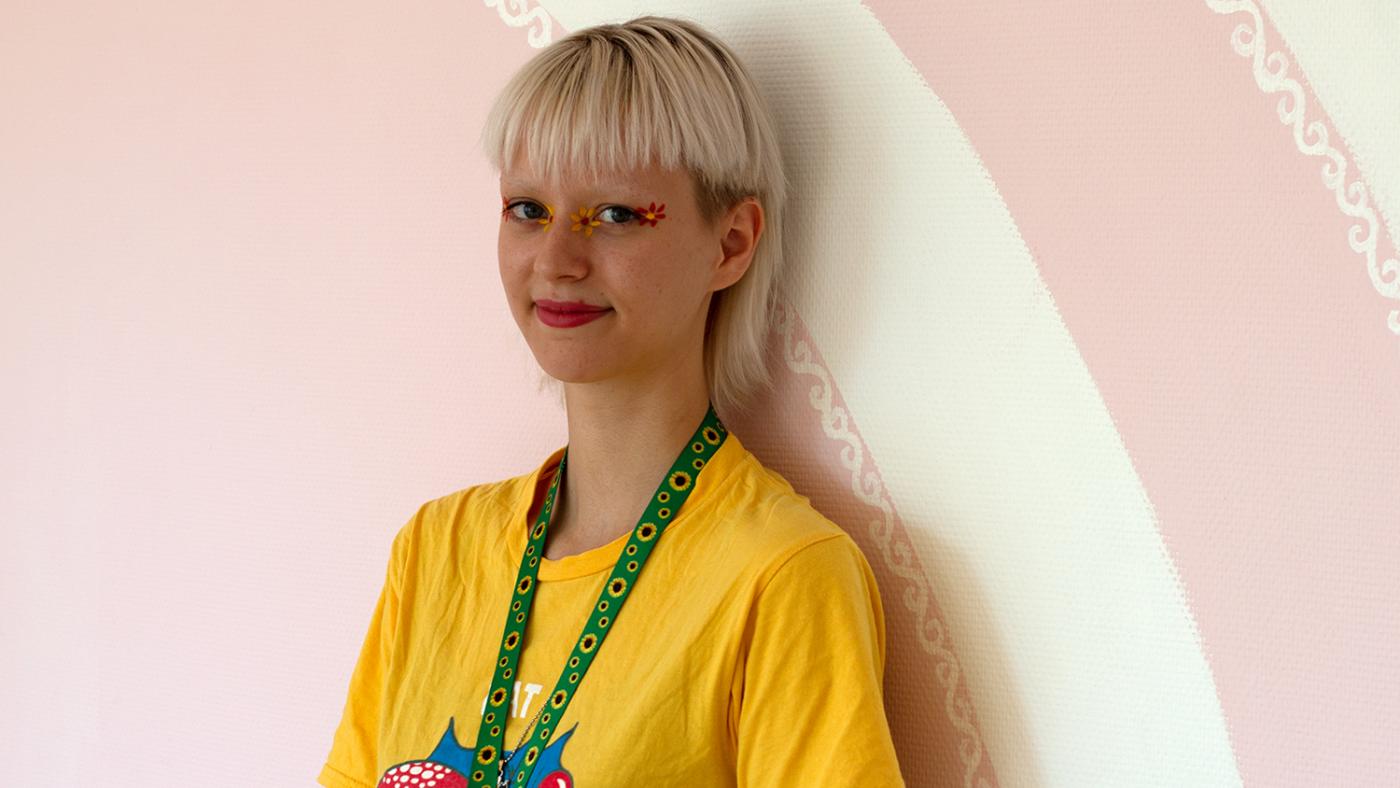How Wicky deals with autism and ADHD as a student:
‘I don’t let what others say influence me’

Although the university has all sorts of regulations, studying with a disability is still tricky. Wicky says you often have to explain that you’ve got a disability: “When I’ve got earbuds in during my study groups I always have to explain that I need them so I can focus because I have ADHD. Otherwise, the teachers think you’re rude or not paying attention.”
Wicky dares to stand up for themselves but other students struggle with this. “Everything that makes you different is scrutinised. You have to justify why you do things in a different way compared to others and that makes you stand out even more.” As a neurodivergent person (a collective term for everything that makes a person cognitively different, Ed), Wicky often faces discrimination. “Sometimes, people will start talking to you as though you’re a small child. Or I’ll get these weird looks when I can’t join a conversation properly because I’m autistic.”
The med student struggles with this even within the boundaries of the university: “During a presentation, a teacher will evaluate if you can tell a good story, if you’re making eye contact, and if you're standing in front of the group with confidence. Those are traits autistic people often don’t have to the same extent as others.”
"You have to explain why you do things differently"
Wicky also felt excluded in primary and secondary school. “Children immediately know who’s different.” This taught them to pretend to be another way: "I would look carefully at how a ‘normal’ person functions and then imitate them. For instance, I learned how to make and keep eye contact, as well as what body language to use, but that doesn't come naturally to me. It costs me a lot of energy. That’s why studying full-time is intense for people like me.”
At the same time, Wicky doesn’t want to be afraid to do things their way. “I never attend lectures. Instead, I watch them from home at 1.5 speed while listening to music. A teacher once asked: ‘If you can’t even make it to classes how do you expect to become a doctor later?’ But I know best how I can learn and live, so I try not to let what others say influence me.”
"I know best how I can learn and live"
They’re happy they can always count on their partners and a great group of friends. “Most of them are neurodivergent, so they understand how I feel. They can talk about how hard life can be when you’ve got a disability.” That social circle, along with the hope of finding a job that will offer them the freedom to do something they're passionate about while also having time to rest, is what keeps Wicky motivated to continue their studies. “But the teachers who listen to my needs help me as well. I’m grateful for people who think along, who are open to changes, and who admit that education could be more accessible.”
Also in this series: how Esmee took an exam while she was in labour and how first-generation student Charisma got a PhD.

An entire magazine on students' mental health!
This article was originally published in our print magazine Vallen en Opstaan ("Falling and getting back up again", Ed) which you can get for free at several places in the entire university from October 19 onwards.
This special edition talks about why UU students often struggle with mental health issues. They have to deal with high expectations coming from others and themselves, not to mention they live in a time where there are many options to choose from, which can be overwhelming. Most of the articles were written by four UU students.
You can take a quiz to see how you fare in the "perfection meter", learn how students overcame obstacles, reflect on the suggestions made by wellbeing experts, and recognise yourself in the photo comic ThirdFloor.
The magazine is in Dutch but all articles are available in English online. Just click here to read them all!